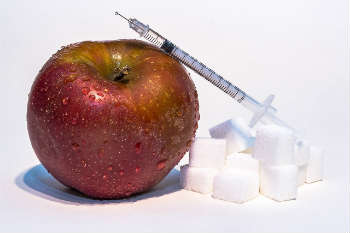Can Consuming Sugar Shrink Your Brain?
A great many of us can’t resist the lure of a sugary treat. Those afflicted with what’s commonly known as a “sweet tooth” have a definite weakness when it comes to tasty foods such as cookies, cakes, candy, and other assorted products. It’s no surprise then that foods laden with sugar consistently rank as some of the best selling products on the market. Despite the popularity of these foods, however, more and more scientific research has indicated that those of us who regularly consume a diet rich in refined foods and sweet things which contain added sugar and ingredients such as high-fructose corn syrup may be putting not only our waistline but also our brain health at risk.
Do We Need Sugar In Our Diet?
It should be noted that sugar is a necessary part of your diet. In order for your body to function properly, it needs sugar to provide energy. The problem lies with the introduction of added sugars into your system. In terms of brain function, new research has uncovered evidence that these added sugars decrease the production of the chemical BDNP or brain- derived neurotrophic factor which is key to our ability to remember and learn. Low levels of BDNP have also been found in people suffering from conditions such as dementia and depression.
As a consumer, you might be unaware of all the foods that contain sugar. The sweet ingredient is commonly added to a wide variety of products, especially those dubbed as “diet” foods. Sugar can be found not only in foods you wouldn’t usually expect like bread, cereal, tomato sauce, and salad dressing.
Using Natural vs Processed Sugar
Healthy fruits such as oranges and apples as well as dairy products like cheese and milk contain natural sugars in the form of fructose and lactose. Once ingested sugar, a carbohydrate, is converted into glucose and used by your body as a source of energy. According to the Cancer Treatment Centers of America, health problems occur when you consume a lot of foods containing refined or artificial sugars (such as sucrose) which are produced by extracting natural sugars from foods such as sugar cane and beets.
Diabetes Connection
Due to elevated blood sugar levels, it’s been proven that people suffering from diabetes experience an increased risk of developing dementia. The role of insulin is key in relation to brain damage caused by sugary foods. An excess of sugar in your blood stream results in your pancreas producing an increased amount of insulin which may find it’s way into your brain cells.
To combat this excess insulin the brain secretes an enzyme normally used to remove protein. This, in turn, results in the build up of harmful beta-amyloid protein which has been linked with cognitive issues such as dementia and memory loss.
Scientific Findings
Recent medical research has indicated that aside from well-documented problems such as tooth decay and obesity those of us who consume foods rich in added sugar are at risk for developing memory loss. According to a 2014 article by Dr. Mark Stengler, heightened sugar levels may have the effect of shrinking your hippocampus, which is the portion of your brain that plays an important role in functions such as learning and memory.
A 2012 article in Forbes reported that eating too many sugary foods may contribute to memory loss, depression, and an array of learning disorders. Research has also linked consumption of added sugars to the inability to stop yourself from overeating which contributes to the problem of obesity. Eating too many sweets interferes with your body’s production of oxytocin which is key in terms of signaling you to stop eating.
New research continues to prove that eating a healthy diet rich in fruits and vegetables and low in sugary foods is not only better for your physical well being but, also reduces the risks to your mental and cognitive health.






